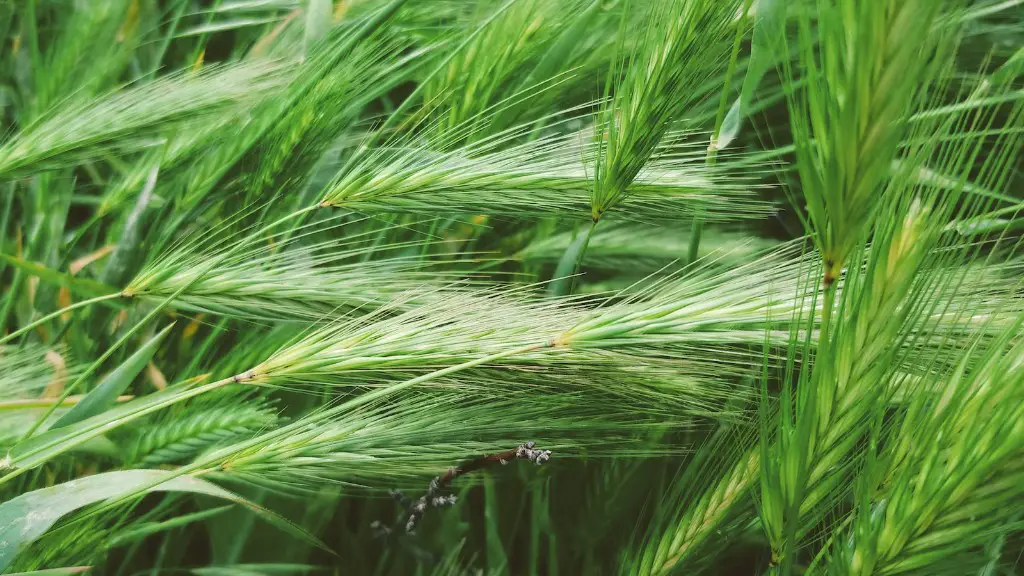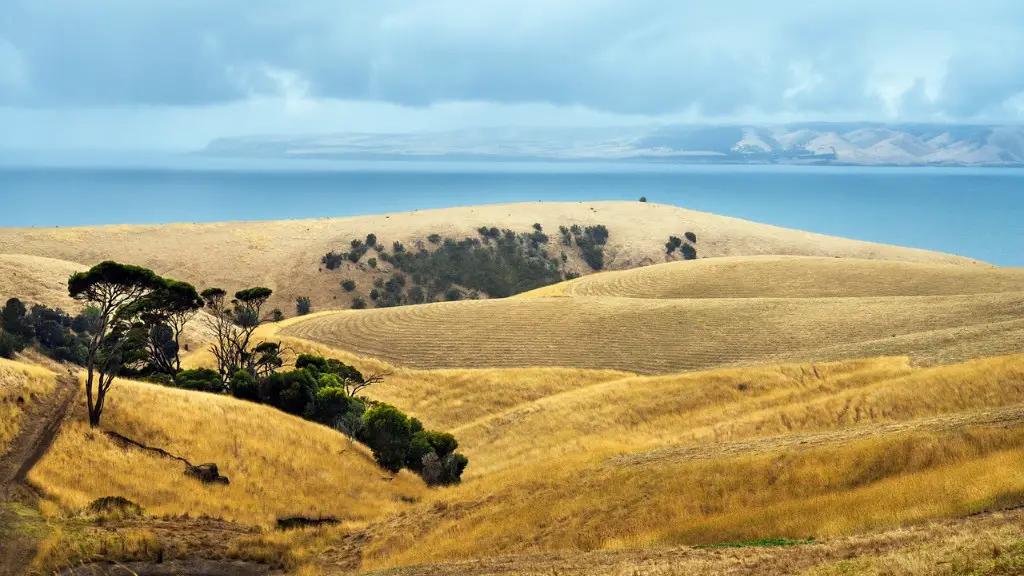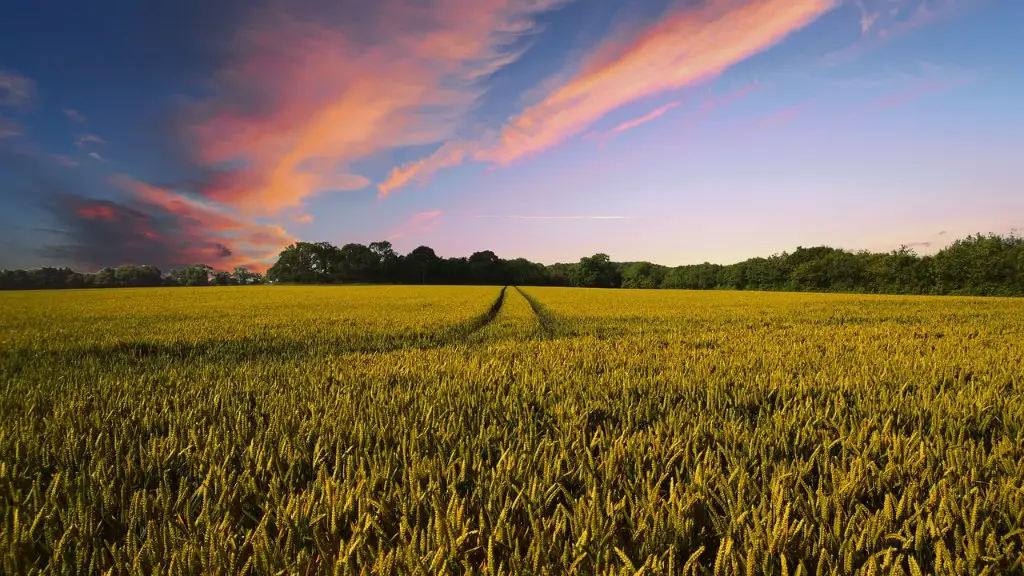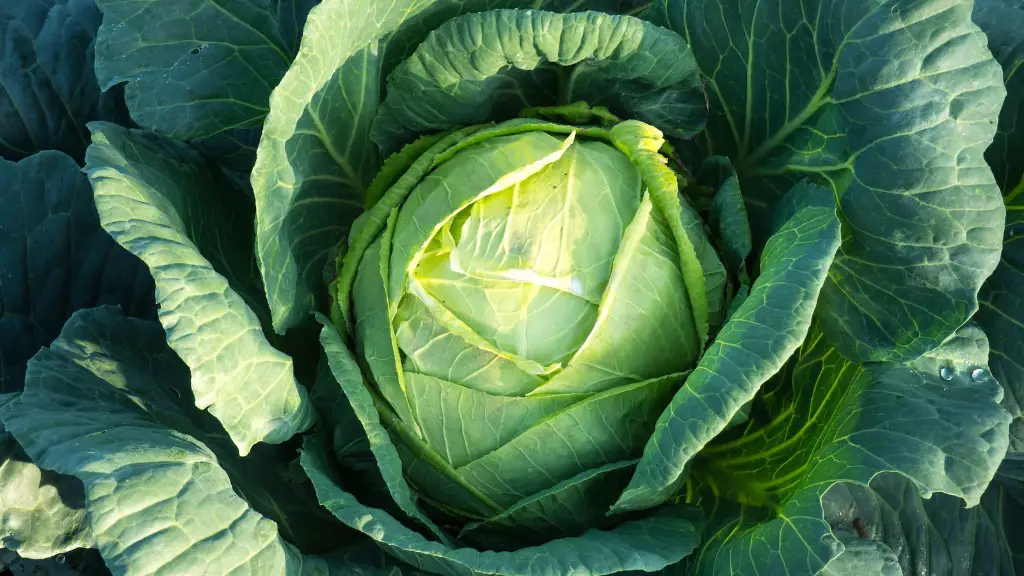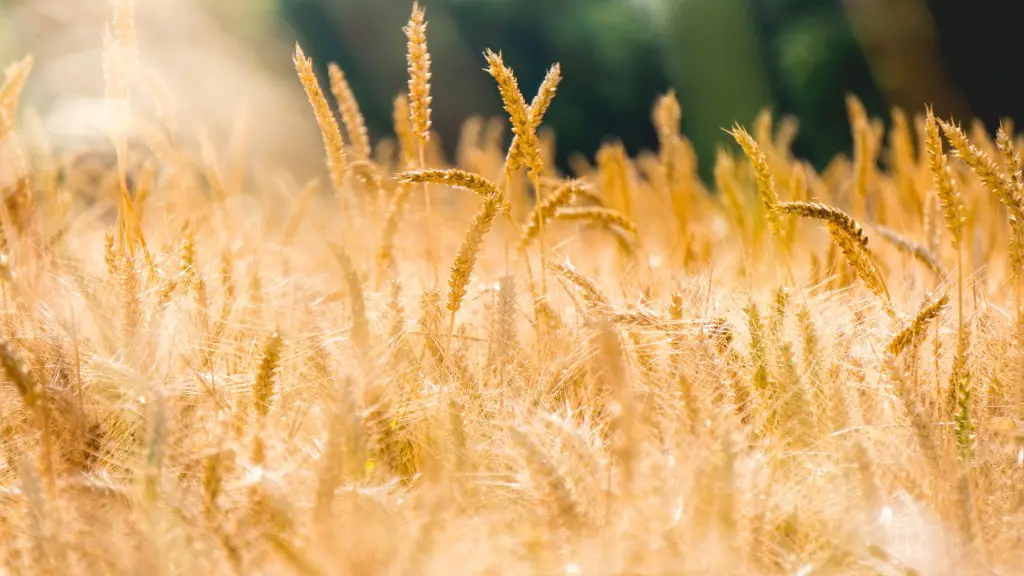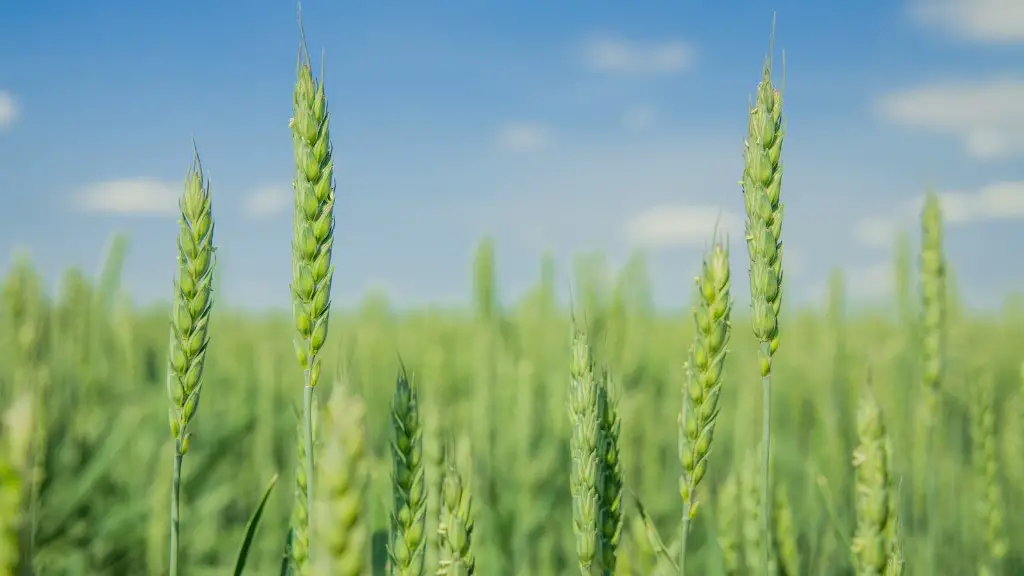The jury is still out on whether agriculture is good or bad. On the one hand, it is responsible for the production of food that people need to survive. On the other, it is a leading cause of environmental degradation.
No, agriculture is not bad. It is essential for human beings to grow food and to have a source of livelihood.
Why is agriculture not good?
Agriculture is the leading source of pollution in many countries. Pesticides, fertilizers and other toxic farm chemicals can poison fresh water, marine ecosystems, air and soil. They also can remain in the environment for generations.
Agricultural contaminants, including pesticides, nitrates, and phosphorus, can have a significant impact on ground and surface water quality. This can affect both urban and rural communities, as well as the environment. Synthetic fertilizers can also deplete soil health and require intensive use of fossil fuels to produce.
Was agriculture good or bad for humans
The Agricultural Revolution was a time of great change for humans. People, who had been hunters and gatherers before, were starting to become farmers. Farming allowed people to produce more food than they could actually eat. The extra food provided by agriculture meant that some people did not have to spend their time gathering food. This led to the development of civilizations and the rise of cities.
Sustainable agriculture is a great way to preserve the earth’s natural resources while also benefiting the environment. By helping to maintain soil quality, reducing erosion, and preserving water, sustainable agriculture helps to keep the earth clean and healthy.
Why was agriculture the worst mistake?
Farming allowed for the domestication of plants and animals, which led to the development of civilizations. However, this also led to the development of deep class divisions. Hunter-gatherers have little or no stored food, and no concentrated food sources, like an orchard or a herd of cows: they live off the wild plants and animals they obtain each day. This way of life is in stark contrast to that of farmers, who have domesticated plants and animals, and can store food for long periods of time. The division between these two groups is often seen as the root of many societal problems.
Setting the table to address the triple challenge means creating a plan that addresses all three challenges at once. This can be done by working with farmers to create sustainable practices that help to protect the environment while also providing a livelihood for farmers and food for a growing population. It is important to remember that these three challenges are interconnected and that any progress made in one area can have a positive impact on the other two.
What is the most problem in agriculture?
Loss of agricultural land and decrease in crop and livestock diversity are two of the biggest challenges facing agriculture today. Agricultural land is being lost to development and other land uses at an alarming rate, while the number of crop and livestock varieties produced is declining. This is a major problem because it reduces the resilience of agriculture to environmental and economic shocks, and makes it more difficult to produce the food we need to feed the world’s growing population.
Agriculture impacts society in many ways, including: supporting livelihoods through food, habitat, and jobs; providing raw materials for food and other products; and building strong economies through trade.
Agriculture plays a vital role in supporting livelihoods around the world. It provides food for people to eat, habitat for animals and plants, and jobs for people to do. Agriculture also provides raw materials for food and other products, such as clothing and medicine. By building strong economies through trade, agriculture helps improve the quality of life for people all over the world.
What are at least 3 cons to our agricultural practices
There are a number of reasons why factory farming is detrimental to both animals and humans. Firstly, factory farming increases the risk of animal cruelty, as animals are often crammed into small spaces and treated inhumanely. Secondly, factory farming negatively impacts small business agriculture, as large factory farms are able to produce food more cheaply and efficiently than small farms. Thirdly, factory farming creates environmental concerns, as the practices used can lead to soil and water contamination. Fourthly, factory farming contributes to health problems, as the food produced is often of lower quality and may contain harmful chemicals. Finally, factory farming can produce low-quality food, as the animals are often given growth hormones and antibiotics to maximise their size and output.
This study is interesting because it shows how quickly human lifestyle can impact our physiology. Humans have adapted to a variety of lifestyles over the millennia, but it appears that the hunter-gatherer lifestyle is best for our overall health. This study suggests that the transition to a more sedentary lifestyle, as we see in modern times, can have a negative impact on our height and health.
What was the biggest mistake in human history?
The invention of agriculture has been a controversial topic for many years. Some people believe that it was the biggest mistake in human history, while others believe that it was a necessary step in order to progress as a species. However, there is no denying that agriculture has had a profound impact on the world and the way we live today.
There are many reasons why agriculture has been so detrimental to the world. For one, it has led to the destruction of many natural habitats in order to make room for farmland. This has had a devastating impact on the environment and has contributed to the decline of many species of plants and animals. Additionally, the use of pesticides and other chemicals in agriculture has pollutionsed the soil and water, which has had a negative impact on human health.
Despite all of these negative impacts, agriculture is still a necessary part of life for many people. With the world’s population continuing to grow, we need to find ways to produce food more efficiently. This means that we need to find ways to reduce the negative impacts of agriculture while still being able to produce enough food to feed the world.
As the world’s population continues to grow, so does the demand for food. And with climate change making it more difficult to grow crops, we need to find ways to make agriculture more sustainable. One way to do this is through climate-smart agriculture, which involves using techniques that help the environment while also boosting crop yields. Additionally, modern genetics and improved farming methods can help us grow more food with less land and water. Ultimately, these things are essential for ensuring global food security.
Is agriculture worst for climate change
We also know that one of the biggest contributors to climate change is factory farming. Factory farms release huge volumes of greenhouse gases into the atmosphere, contributing to the warming of the planet.
Not only is factory farming bad for the environment, it is also cruel to the animals involved. Animals on factory farms are often kept in cramped, dirty conditions and are given growth-hormones and antibiotics. They are treated as nothing more than commodities, and their welfare is often neglected.
It is clear that factory farming is unsustainable and cruel. If we want to protect the planet and its inhabitants, we need to move away from this type of farming.
Agriculture is a critical sector in the fight against climate change. Agricultural production emits greenhouse gases, but it also has the potential to mitigate climate change by sequestering carbon in the soil. In addition, agriculture can produce biofuels, which can substitute for fossil fuels and reduce greenhouse gas emissions across multiple sectors. These actions are considered forms of climate change mitigation.
sequestration: the capture and storage of carbon dioxide or other greenhouse gases in order to slow or reverse their impact on the climate
biofuels: renewable fuels made from plant or animal materials
Why is agriculture bad for climate change?
Agriculture is a major contributor to greenhouse gas emissions. Around 25% of annual emissions come from food production and land-use changes associated with farming. This includes clearing vegetation, plowing, and other agricultural activities. Reducing emissions from agriculture is essential to mitigating climate change. There are a number of ways to do this, such as improving efficiency, reducing wastage, and switching to low-carbon practices.
Negative perceptions of youth about agriculture being less lucrative, labor and capital intensive, and an activity with low self-esteem make agriculture unattractive to the youth, hence their low participation in agriculture. These challenges coupled with the negative perceptions of youth form a significant barrier to agricultural development and economic growth. In order to make agriculture more attractive to the youth, it is important to break down these negative perceptions and to provide opportunities for youth to get involved in agriculture. One way to do this is by supporting youth-led initiatives in agriculture and by investing in agricultural education and training.
Final Words
No, agriculture is not bad. It is essential for human survival. Agriculture provides food, fibers, and other products that we need to live. It also helps to support ecosystems and preserve biodiversity.
No, agriculture is not bad. It is a vital part of our food system and provides many jobs. However, there are some negative impacts of agriculture, such as soil erosion and water pollution.
